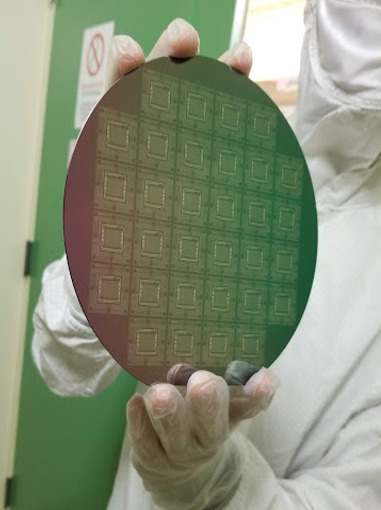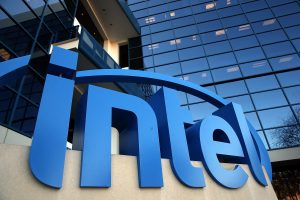
What are the topics covered this week? There’s a pair of Chips Acts (for the EU and the US), the proposed Arm IPO, Intel Foundry Services and an Engineer In Wonderland blog about strong polymers…
5. EU launches Chips Act
The EU president Ursula von der Leyen launched the $48 billion EU Chips Act this afternoon. The Act aims to rival the $52 billion US Chips Act with the goals of quadrupling EU IC output in the next eight years and securing 20% world market share for Europe. $48 billion in one year, on its own, looks small compared to the capex budgets of the Big Three which are running at $40 billion a year. The source of the funding for the Act’s proposals is under discussion because the EU budget has already been allocated till 2027. It seems that only €5 billion – or 15% of the budget – is coming from direct EU funding and the rest has to be clawed back from already allocated spending.
4. Arm to IPO after Nvidia bid fails [Mannerisms]
R.I.P. Nvidia-Arm, thank goodness. It always seemed a cheeky-chappie sort of bid – something the bidder saw as a bit of a flutter without serious expectations of success. For Jen-Hsun Huang, however, who trousered $150 million by selling shares during the deal, the exercise can’t really be called a failure. However the intellectual effort to justify the proposed deal was pitiful. Any schoolgirl could have produced better justifications for the merger than those put forward by Nvidia and Arm. To suggest that Arm – an IP company for goodness’ sake – wouldn’t be able to afford its R&D budget without Nvidia was insulting. To suggest that Nvidia, a long-time licensee of Arm, needed to buy Arm before Arm and Nvidia could co-design a chip to attack the datacentre market, is daft.
 3. Alphawave, Analog Bits and Siemens Digital sign up for Intel Foundry Services
3. Alphawave, Analog Bits and Siemens Digital sign up for Intel Foundry Services
Analog Bits, Siemens Digital Industries Software and Alphawave are partnering with Intel Foundry Services (IFS). Siemens Digital Industries Software has become a charter member of the Intel Foundry Services (IFS) Accelerator – EDA Alliance, a programme committed to establishing an ecosystem for the design and fabrication of next generation SoCs manufactured on IFS’processes. The initiative promotes collaboration between IFS and its ecosystem partners, with a focus on reducing risk and tackling design barriers while accelerating time-to-market for mutual customers’ products. IFS Accelerator – EDA Alliance partners receive early access to Intel process and packaging technologies, allowing them to co-optimize and enhance tools and flows.
2. That ‘stronger than steel’ polymer [Engineer In Wonderland]
Polymers inside what we call plastics are long thin molecules tangled together – so one-dimensional molecules. Scientists at MIT have managed to make a two-dimensional polymer, which lays down in stuck-together sheets a bit like graphene. The material, dubbed 2DPA-1, has a 2D elastic modulus of ~12.7GPa and a yield strength of ~488MPa, leading MIT to say that these are “between four and six times greater than that of bulletproof glass” and “twice that of steel, even though the material has only about one-sixth the density of steel” respectively. “Such a material could be used as a lightweight, durable coating for car parts or cell phones, or as a building material for bridges or other structures. Another key feature of 2DPA-1 is that it is impermeable to gases.”
![]() 1. US (sort of) passes Chips Act
1. US (sort of) passes Chips Act
The US Chips Act was passed by the House of Representatives on Friday by a 222-210 margin. There now follows a period when the Senate and the House seek to reconcile the differences between their two versions of the bill. The combined version will then have to be voted on again to become law. If passed the Act would provide $52 billion for semiconductor investment. The bill, as currently constituted, would establish a role of Chief Manufacturing Officer in the White House’s executive branch and create nearly one million additional apprenticeships over the next five years.



![W88 [Rủi Ro Khi Chơi Nổ Hũ: Lưu Ý Quan Trọng Nhất Cho Người Chơi]](https://theskil.com/wp-content/themes/rehub-theme/images/default/noimage_336_220.png)

